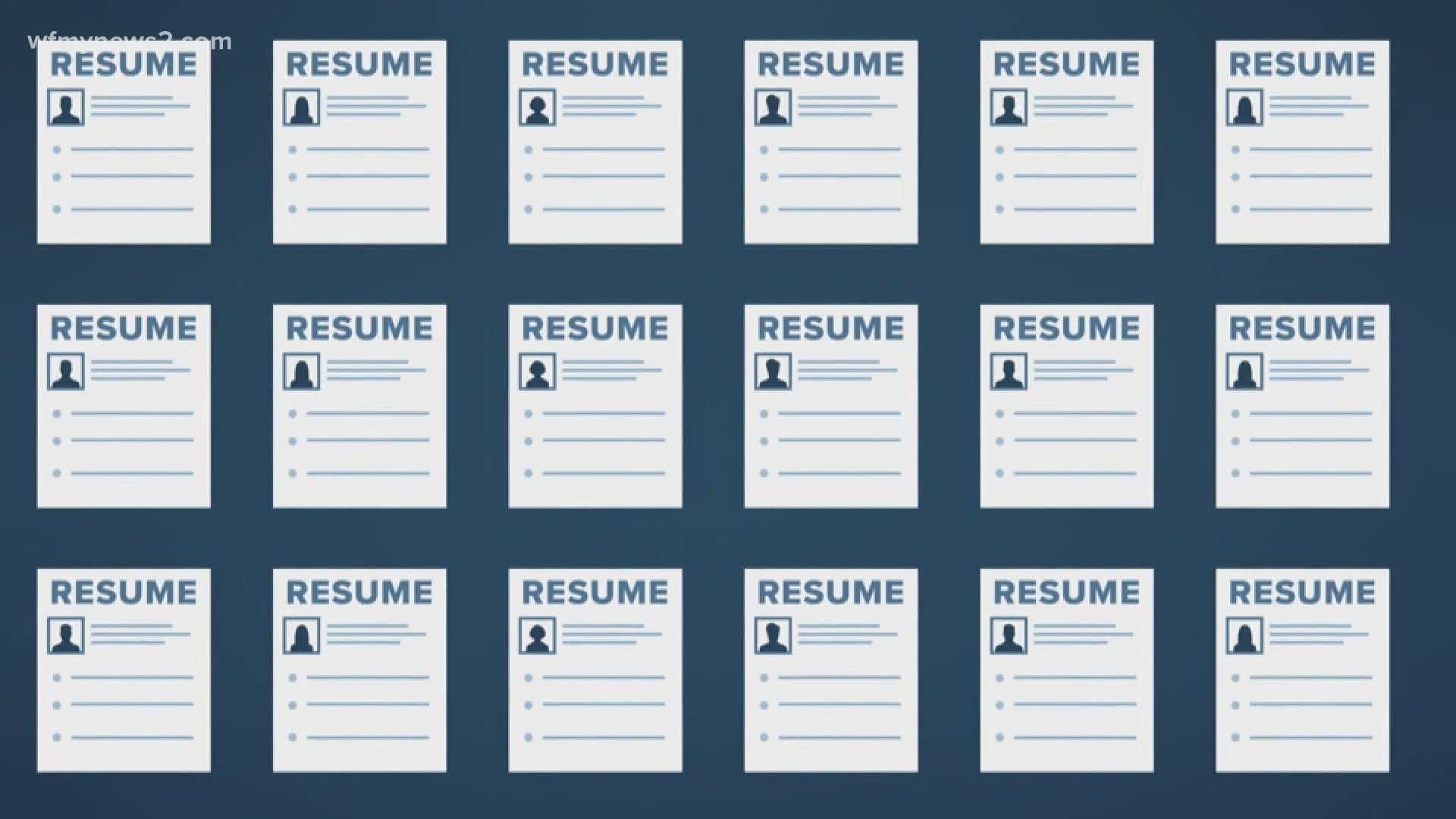GREENSBORO, N.C. — You know the unemployment claims are unprecedented. In 10 weeks, 40.7 million Americans have filed jobless claims. That’s more claims filed in the previous 178 weeks combined!
Think of it this way, if you took every man, woman and child living in New York City, LA, and Chicago and multiplied them not by two, but by three, you’d have about the same number of people who have filed claims since the start of the pandemic.
Ever since the days of World War II, unemployment in America has risen and dropped slowly, gradually, revealing recessions-- not one of which touched double digits until April, when the US recorded the largest one-month percentage increase in our history.
It was a shock to the American economic system. A shock felt so acutely over such a short period of time Congress decided it was simply too much for too many to handle.
You see, before all of this, the average weekly unemployment insurance benefit was around $388, about 40% of what the unemployed on average earned before they lost their jobs.
RELATED: Greensboro single mother drives to Raleigh, holds sign asking for help with unemployment claim
In March, Congress agreed to add $600 to make weekly payments roughly the same amount the average worker made pre-pandemic.
Problem is, state unemployment programs are running out of money. At least nine states have already reached insolvency and have asked to borrow money from the feds to backfill their own funds. North Carolina is on the list of nine.
How does that work? According to Business Insider, the state borrowed $2.8 billion during the 2009 Great Recession. It took until 2015 to pay that money back. The state did that by charging employers another 20% on their unemployment taxes and the state also cut the amounts of individual unemployment benefits as well as cutting the number of weeks benefits were given.
RELATED: Gov. Cooper extends moratorium on utility cut-offs and implements evictions moratorium amid pandemic
More states are expected to follow in borrowing money because come to the end of July, that $600 bump in payments from the federal pandemic funds is set to expire, leaving tens of millions with an unenviable conundrum:
Try to find a job in a market filled with tens of millions of new and desperate competitors, or settle in for a summer unlike any we’ve seen since the days of the depression.

